COVID19 in Italy, or making things as simple as possible
NOT simpler, of course. But as simple as possible yes, please.
First, the worst
Italian flags all over the world flew half mast on March 31st, to honor the COVID19 victims, often buried without any service.
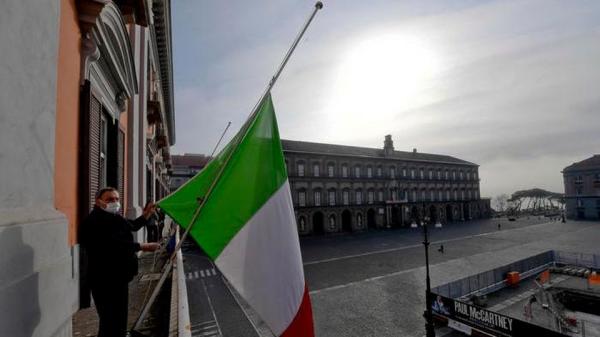
When will the lockdown end? We’ll see as we go along, said the government on March 28th (See next paragraph). Three days before, it had raised fines for lockdown violations up to 3K Euros, and up to 5 years of prison for quarantine violations. Starting yesterday, whoever enters the country is checked for temperature, and must declare the reason for travel and the place where she will stay in quarantine for two weeks, how she will get there, and a phone contact.
Update April 1st 2020, 8pm, GMT+1: This evening PM Conte announced an extension of countrywide lockdown until April 13th, included and, answering a journalist, said he has already made clear to other EU leaders, and will do it again, that this is not the time to speak of containing deficit with rules made in different ages, that exceptional measures are needed for all countries, and leaders must first find the money, then discuss how to pay it back. (This makes the scenario I imagine at the end of this post a (tiny) bit closer)
Nobody knows why Lombardy is special, yet. Someone observed that the map of outbreaks in Lombardy somehow mirrors that of public transportation. So far, however, what the italian virologist Ilaria Capua said on March 20th still applies: the violence of the outbreak in this region is still a mistery.
The disease of loneliness.
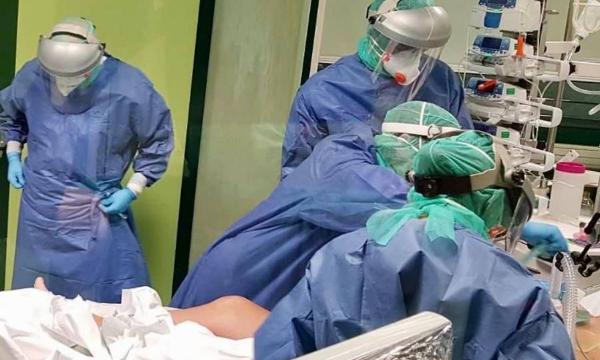
This is how an hospital psychologist has called COVID19 on TV, telling the pain of patients taken away from their homes by faceless aliens. Or the sufference of an ICU doctor when an old lady died before him. Trying to thank and greet him, with her last caress. On his visor, of course. In Genova, some family doctors assisted patients over the phone, until they died. Because in the hospital they would have “surely died anyway, but with nobody to talk to".
Have YOU been dancing, lately? Retirement homes from Sassari (Sardinia) to Nerola near Rome, are time bombs: clusters of the most vulnerable people, assisted by staff which all too often still lack enough protective equipment to protect their patients, besides themselves. But every place where seniors love to meet is a risk. A doctor in Alessandria, Piedmont, reports finding infected people in, or should I say “from”, many clubs in the province where seniors regularly gather to play cards, or dance. He soon learned to ask “have you been dancing lately?" instead of “have you been near Codogno, where the outbreak started?”
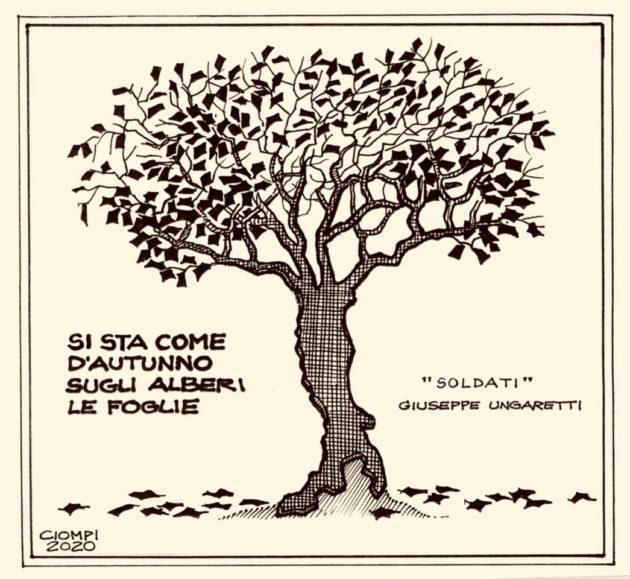
<u><em><strong>CAPTION:</strong>
<a href="http://frontlines.comixiade.org/site/archives/Soldiers.htm" target="_blank">Here we are, like leaves from trees in autumn - G. Ungaretti, 1918</a>
</em></u>
A moneyless spring is coming. This month’s payday brought none or less money to a lot of people. COVID19 has brought to the front stage, as it will surely do in any other country, the too many people living paycheck to paycheck in Italy before the outbreak. Or those or working in the black market, who cannot even file for unemployment support. Social unrest is likely, starting from Sicily, as is the probability that the Mafia quietly takes control of many businesses now in crisis.
Nationwide, some estimate the reduction in consumption as big as 50 billion Euros. Many “Last Mile” workers, from riders to infrastructure repair crews still work untested. Trade Unions menace a general strike to avoid more infections. 44% of store owners cannot exclude shutting down for good.
Meanwhile, daily life continues…
and, as it always does, is a mix of sadness and smiles.
Clean homes can be TOO clean. Emergency calls for harmful uses of home or mask sanitizers have increased 65%.
Moms continue to protest because school supplies and stationery that could keep children busy are not available.
Sewing fights COVID19. The Armani Group has converted all its italian factories to production of medical gowns, and seamstresses (note their average age) all over ther country sew emergency masks:
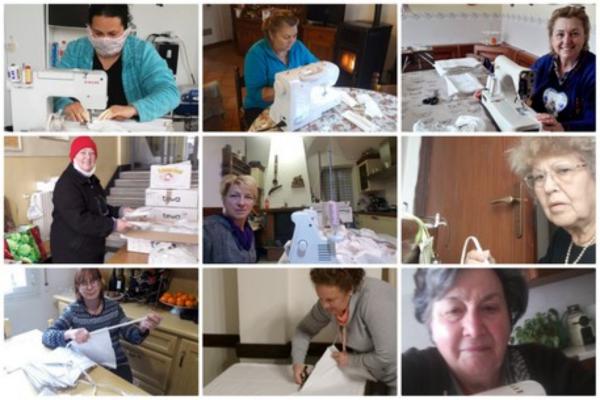
No books, no exam? University students may study at home better than their younger peers… unless they need paper-only books. Amazon has suspended book deliveries, and its national competitors have backlogs of at least one month, if they keep shipping at all.
Dog shelters have their own curves to flatten. When rumors said dogs could carry COVID19, more pets than usual were left at their doors. Now, they get too many request to adopt excellent excuses for daily walks.
Police patrols need a rest, least more of them crash onto each other, on deserted roads:
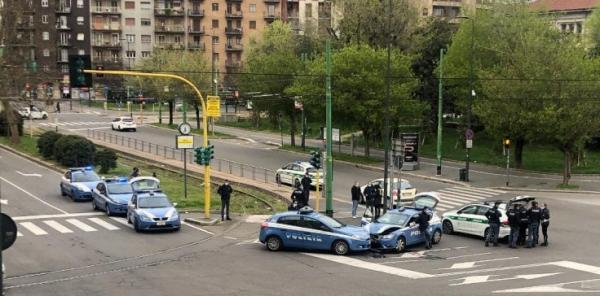
“Migrant” is not what it used to be. Italians working in Switzerland are telling each other “you better not drive around in cars with an italian plate…" In Southern Italy, instead, some illegal migrants still come, but prepared. These ones:
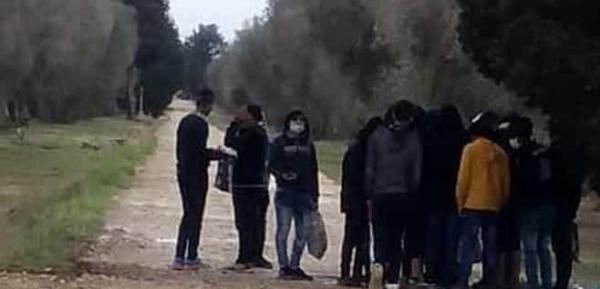
were recently catched in Puglia, right after arrival… wearing masks, thus allowing nationalists to point out who are the only defenders of “poor Italians always treated worst than foreigners”.
Soccer cries. The A-League forecasts losses up to 720 million Euros if they cannot resume matches in April. Forgive me for not giving a damn.
Desperate, jobless nutritionists spam all the customers they ever had, offering webinars or newsletters to resist fridge temptations, or strenghten one’s immune systems by eating expensive food that is hard to find.
Social distancing is impossible inside the prisons where 6 inmates already died for as a consequence of the lockdown. Many prison managers have demanded law changes that force judges to send as many inmates as possible to (quarantined) house arrest.
Hospital waiting lists grow, due to the need to focus on COVID19 and avoiding contagion. More than one million of scheduled surgeries have been already canceled, more than half for non-urgent, but important conditions like slipped disc, or hip prosthesis.
Doorbells increase stress. Five days ago, the doorbell rang for the first time in three weeks. Tension ensued: is this the police coming to say that some relative died, or the building manager saying that heating broke and won’t be fixed? In my case, it was the postman, informing me that he’d leave on the floor a magazine too big to fit in the mailbox.
Parties like 2019 are NOT welcome. Sixteen Erasmus students have been expelled by the University of Sassari (Sardinia) after gathering to party on a terrace, from all over the city.
Distance learning meets grief support, when online school lessons turn, without advice, into remote group support sessions for teenagers who just lost some relative to COVID19.
No lotteries, no problem. The “sing from balconies” thing has grown old, but some condominiums in Naples switched to play tombola (raffle) from balconies, shouting the numbers with a speakerphone.
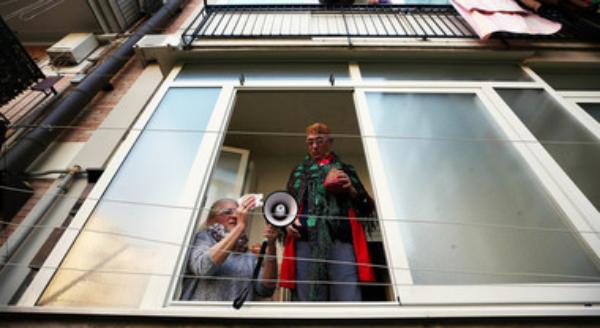
“Easter without the people”. Last Thursday, Pope Francis prayed alone in St. Peter’s Square:
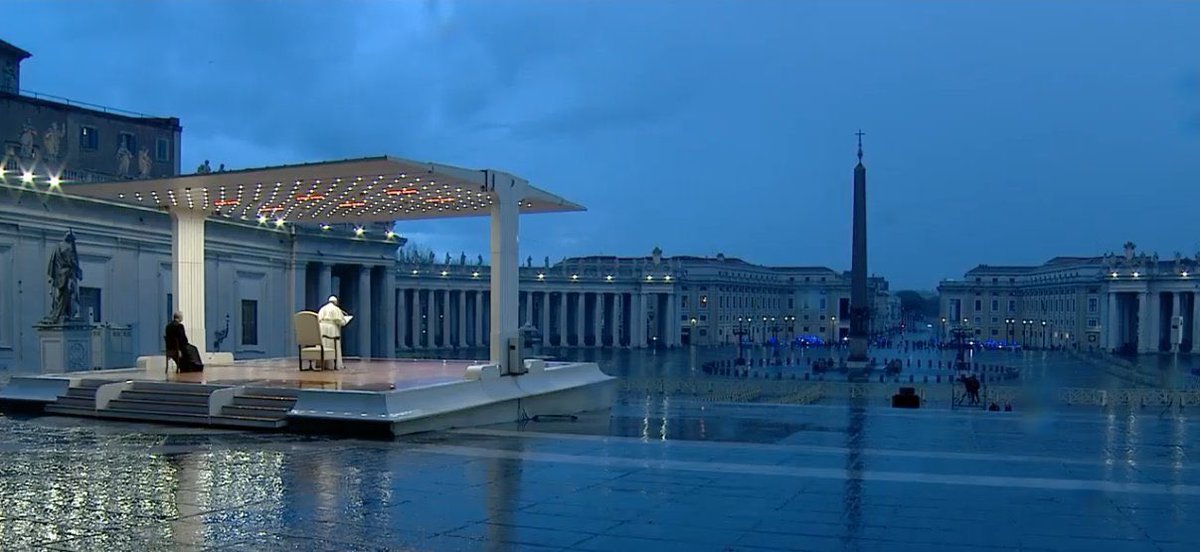
This view has been the saddest moment for many Italians, catholics or not. Public Easter celebrations will happen in similar fashion, said the Vatican. By then, all priests will have hopefully learned to disable Instagram filters before livestreaming Mass.

“Do these geniuses really want me BREATHING again all over their faces? So soon?" I bet this is what a hairdresser of Codogno thought, when the local ultra-strict lockdown ended, and the first thing many residents did was to book an appointment. Being a smart lady, she decided to keep losing money for a while more. I wouldn’t be surprised if she, or your favourite beautician, greeted you in this way when lockdowns end:
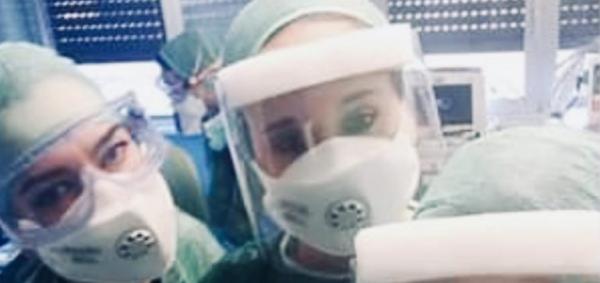
Birthday toasts happen in videoconference, when we are not busy sharing stories of police checks, recipes for breadmaking, or tips where to find yeast, the only food item I’ve never seen in the closest supermarket for twenty days now.
Weirdest moments of the week: One was reading painfully obvious reminders that when you are poor, you CANNOT do social distancing, right before the discovery of luxury quarantine packages. OK, hotels need to survive too, but this really evokes the Masque of Red Death, and I would join in a flash a boycott of whatever business their current customers run. Another weird, but not bad moment, was reading of Russian doctors co-staffing a hospital managed by our Alpini, that is the Army corp that was almost annihilated in our WWII Russian Campaign.
MORE lockdown for me, and that’s great
Two weeks ago I was really upset about the COVID19 Repatriation Catch-22. The reason is my daughter, then abroad on Erasmus Learning Mobility. She had to return home last Sunday, because she had no more courses to follow, no guarantees her hostel would stay open and too many roommates still singing the “just a flu” song. I feel much better now, but this means two weeks of real at-home quarantine for the whole family: she never leaves her room, we push her meals on a tray, never get close to her, never leave home except for absolute necessity. For two weeks, even if lockdown ends earlier. Wait for the next post to know how we manage.
The big picture
I can’t believe there are still people on the planet who throw around lists like this to “prove” that COVID19 is no big deal, much less than normal flu:
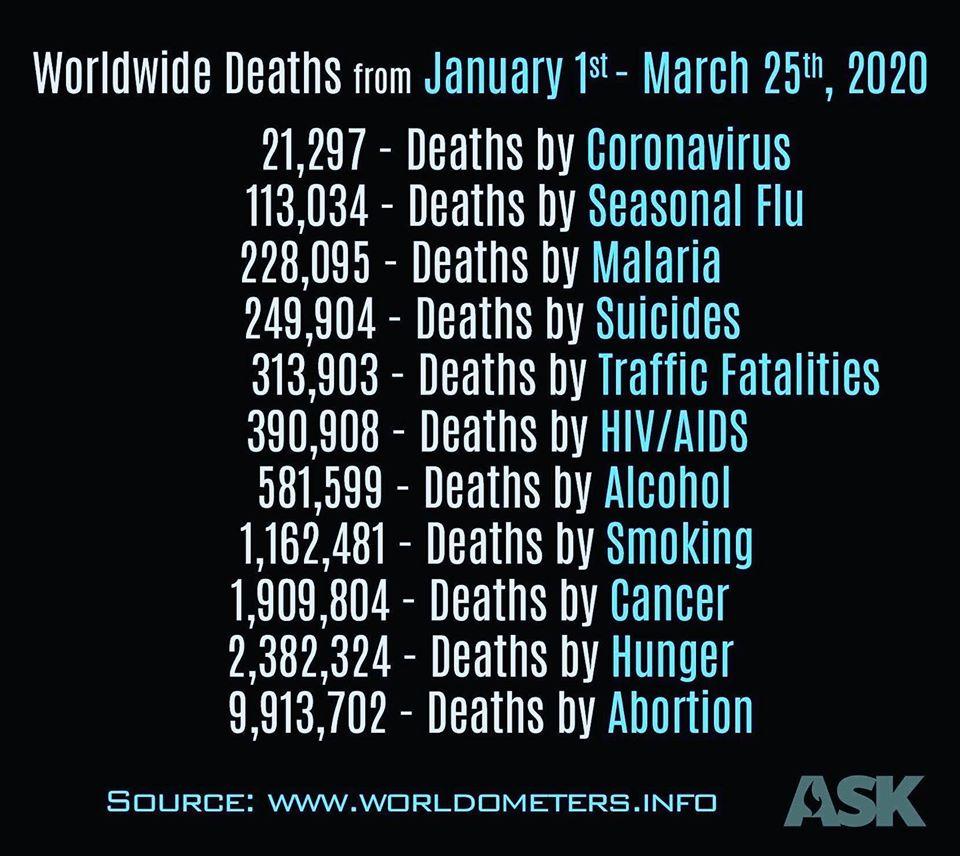
when it takes ten seconds to see that only the first two entries are infective, and only the first could, if considered “just like flu” wipe out even most doctors, nurses and hospital capacities in all developed nations in a few months. If that isn’t enough, watch this graph of monthly deaths in Bergamo in the last ten years:
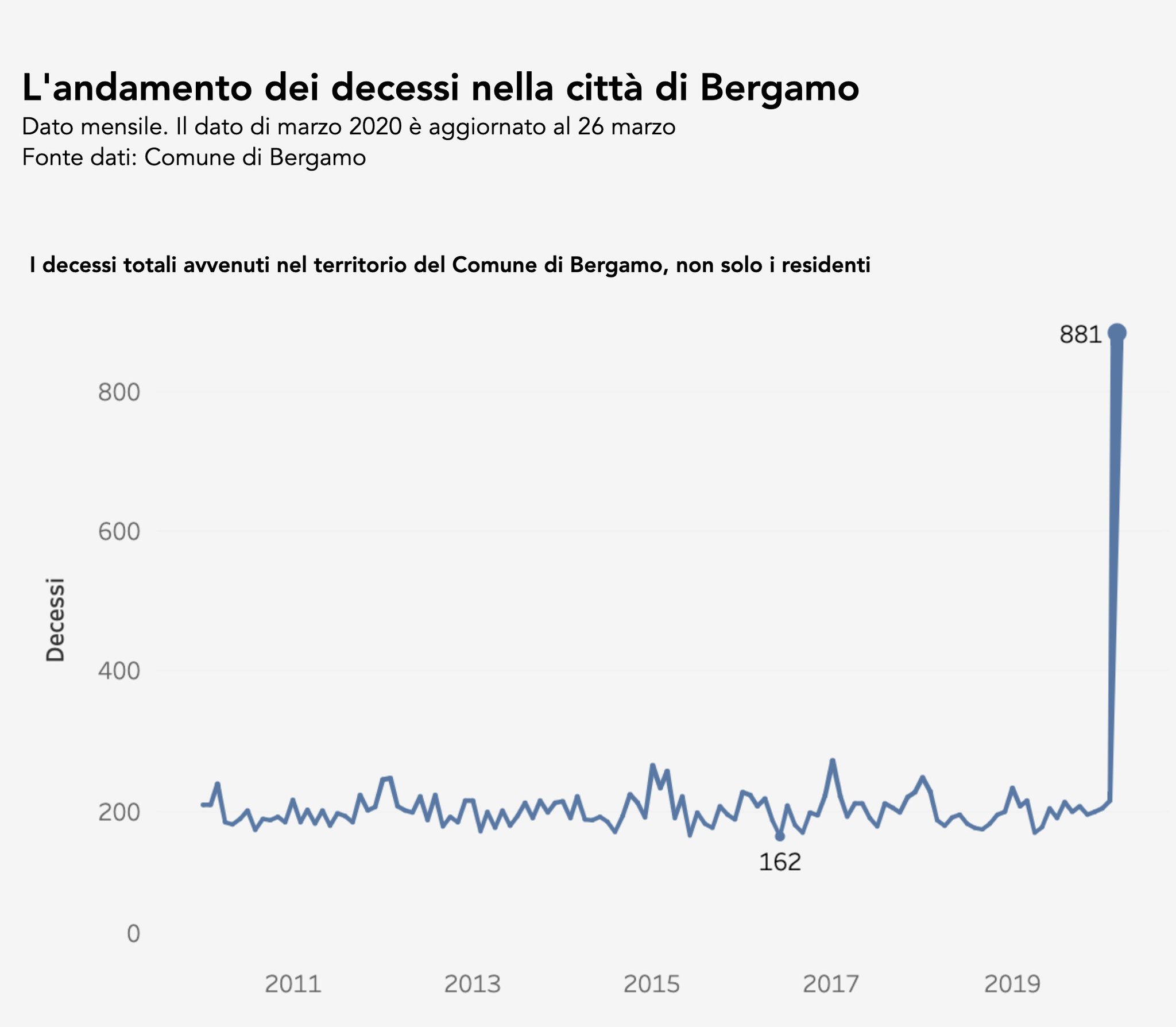
As times passes, it is evident that Italy has made mistakes. But they are the same mistakes we (and many other countries) were doing before, and nothing like that chart has happened here for at least one century. Except major earthquakes or WWII, that is.
Keep reading to see more stuff that Italy is learning now. Finding how and why it applies to every country, with or without COVID19, is left as exercise for the reader.
State infrastructures and bureaucracy are naked
The public website where self-employed people (including me) could apply for a 600 Euros “emergency bonus” crashed under load in the first 24 hours. From Twitter: “The conclusion seems quite simple: after more than ten years of trials after trials, there isn’t one single IT public service or infrastructure that works decently [when we need it the most]. Starting to fix this may be a good idea."
Distance learning has unexpected advantages. And obvious limits
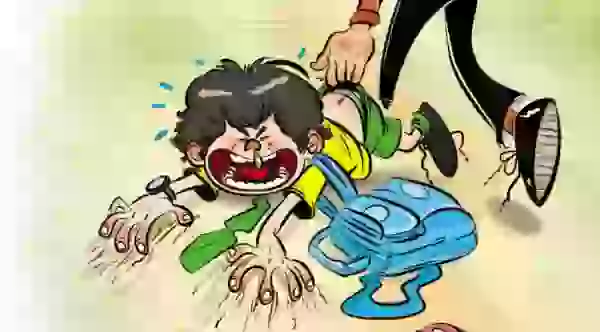
<u><em><strong>CAPTION:</strong>
<a href="https://www.npr.org/sections/ed/2016/09/04/485838588/after-25-years-this-teacher-says-its-all-the-paperwork-that-made-him-quit" target="_blank">Click for source, note the date</a>
</em></u>
“In forty years of teaching, this is the first time I teach in a place that is adequately clean, comfortable, heated and equipped. Without interruptions by students asking to go to the toilet, or secretaries coming in every hour to make me sign some paperwork”. These are just-in, real words by italian high school teacher, who also reports more relaxed students, for the same reasons.
Another teacher is happy that the lockdown has “shown very clearly what (public) school really needs and what is just overhead, or fads”. She put paperwork, nationwide tests, internships in companies as preparation to work, and much more in the latter category, leaving only “real human relationship between teachers and students, and among students” in the former. Outside Italy, I’ve read that “Now more then ever we need to make the most of technology in schools”.
Personally, I hope that this italian lockdown makes finally clear to parents, educators and education regulators worldwide that:
- yes, some more tech in schools is probably needed. Not now, or in Italy: in general
- this should not become an occasion for Foreign Big Tech to take over this “market” too
- more digital competence by both teachers and student is a must. In that sense, the lockdown is a blessing, nothing less would have convinced certain teachers to use a computer to teach
- distance learning is not school, and should never be the default solution (yes, it takes a lockdown to repeat obvious truths): “it’s like playing soccer vs watching it on TV”

September 2020: Thanks heaven it's already time to sit still indoor for ten months!
</em></u>
Two other school-related things that every country (and parent) should remember now, in my opinion, are the role of school, and its timing. However it works, “school” cannot and must not replace family, or friends. A society where school is the only place where kids socialize and learn is sick, in deeper, eventually more harmful ways than by COVID19.
On the timing side, proposals to change the school calendar, e.g. continuing until July, or reopening early September, make little sense to me. Fact is, every change of schedule has equal probabilities to be wrong: we do not know for sure when this outbreak will end, and nobody can exclude another outbreak next autumn. Above all, if all goes well students will need to freely play outside more, not less than usual. Just keep the standard calendar, and recover whatever is needed during the next year. It’s the last of our problems.
Uber for white collars

Sources tell me that Italy may be the only country that calls Smart, or Agile Working what elsewhere would be mere “telecommuting” or “remote working”. One reason, some say, is laws: “Telelavoro”, that is the literal translation of “remote working”, is an activity formally acknowledged and regulated by law here, with precise responsibilities for employeers, e.g. providing training and equipment. Telling employees “just get that report done from home, dammit” is Smart, unregulated Working.
Regulations aside, around here it is more evident every day that the only really Smart Working is work that is, in this order:
- really necessary, non-machine-doable to begin with
- designed from scratch to use the best available tools
- done by decently motivated workers, wherever is better
Peak complexity and Too Big To Fail, revisited
Flash sentiment analysis, from Twitter:
- “I’m still optimistic that we can emerge on the other side of this with the problems we had before largely intact”
- “To restart the economy, States will have to pump money… If they’ll give it to the old masters, everything will be worst than before”
There are all sorts of grand plans announced, both in Italy and at EU level, and all seem to share the same two defects to me: They are too complex to work without widespread frauds and inefficiencies, and they will save much that should not be saved at all. Not with public money anyway.
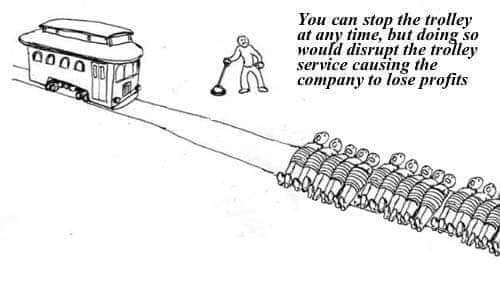
The basic story is the same: “if Big Organizations fall, all their employees will starve, and corporations dividends even pay many pensions”. True, but then the problem is to find some way to keep giving money to those people, and restart what is really needed. Not to keep running mammoths that will find some other way to come back, if there really is a demand for it. Weeks ago I was wondering why nobody here is talking about a real Universal Basic Income. Now, both the Minister for Southern Italy and Beppe Grillo, founder of the Five Star Movement do it. Way simpler than other solutions, at least as realistic, given the situation.
Similar consideration apply at higher levels. Here is just one journalist saying of Italy what may be true of many other countries soon: “It is evident that Italy won’t make it alone, unless it defaults and starts over”.
Maybe (maybe) a global default is a recession only if you insist on measuring GDP; otherwise is a managed World Debt Jubilee. Much less harmful than it may seem. A crisis is a terrible thing to waste (cit.).
What if a tsunami had hit Bangladesh?
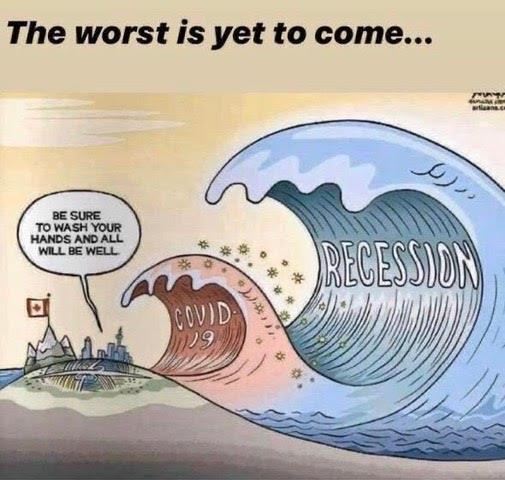
On April 24th, 2013 a garment factory in Rana Plaza, Dakha, collapsed, killing 1134 people, injuring 2500 and earning the title of “deadliest structural failure accident in modern human history”. If a tsunami had hit that building ten minutes before the collapse, taking the blame for killing thousands, nobody would have realized that those lives were doomed by human errors anyway. Yes, there will be a recession after COVID19. But we had multiple warnings of a “structural failure” in 2020, worse than the 2008 meltdown, TWO YEARS AGO.
The usual final request of all these posts of mine is always valid:
- if you find useful these reports of mine, and my other work here, please do support it, and share these posts as much as you can. But above all…
- Many people besides and before me, have been working for years to give advice and practical solutions to make the world a better place, more resistant to crises like this. Please listen to them NOW! A good starting point to do that is my POST-COVID19 resource list
Stay safe!
Who writes this, why, and how to help
I am Marco Fioretti, tech writer and aspiring polymath doing human-digital research and popularization.
I do it because YOUR civil rights and the quality of YOUR life depend every year more on how software is used AROUND you.
To this end, I have already shared more than a million words on this blog, without any paywall or user tracking, and am sharing the next million through a newsletter, also without any paywall.
The more direct support I get, the more I can continue to inform for free parents, teachers, decision makers, and everybody else who should know more stuff like this. You can support me with paid subscriptions to my newsletter, donations via PayPal (mfioretti@nexaima.net) or LiberaPay, or in any of the other ways listed here.THANKS for your support!